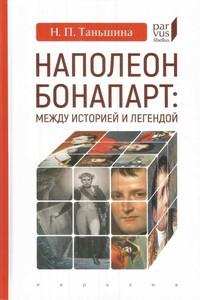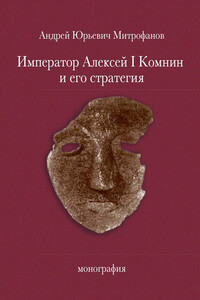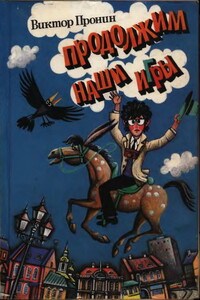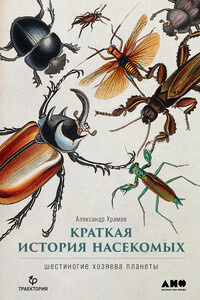Английский язык для специальных и академических целей: Международные отношения и зарубежное регионоведение. Часть 1 - [15]
British official language identifies monarchy as the most vital act of union, and as an enduring one. The very name of this state “The United Kingdom”, makes clear the centrality of the Crown, and conveys a sense of permanence. The national anthem, too, focuses on the Crown and underlines its endurance.
In his famous commentary on the constitution, the Victoria journalist Walter Bagehot offered a detached, often a sardonic analysis of the monarchy, but he accepted that the institution was a resilient one. Monarchy, Bagehot suggested, benefited from being a relatively easy political system for people to understand. And the appeal of a royal family of the British type was particularly tenacious, he argued, because it virtually guaranteed ‘nice and pretty events' at regular intervals, and held up a glamorous mirror to emotions and choices that were widely shared and familiar. As we were reminded in July 2013>15> this still holds true.
Yet Bagehot also recognised that it was inappropriate to place too much stress on royal continuities. Privately he believed that support for the monarchy might well decline as access to education in the UK became more widespread, and he speculated that such a falling away of support was likely to happen sooner in Scotland than in England. Whatever you think of this, in one respect Bagehot was right. To understand how and why monarchy mattered here, one needs to look not just at tradition and custom, but also at disjunctions and at change over time.
A patchwork of different kingdoms existed throughout these islands from the early Middle Ages. England became a single kingdom in the tenth century, while a single king was able to control most of Scotland by the thirteenth century. Wales and Ireland, however, were more fragmented and conflict-ridden, experiencing multiple and competing rulers. And although successive English kings tried to conquer the outer zones of the British Isles, it was, in fact, a Scottish king —
Unit I. UK: from Empire to Democracy
Unit I. UK: from Empire to Democracy
James VI — who finally effected>1 a Union of Crowns, bringing under his single rule in 1603 his own kingdom, Scotland, the kingdoms of Ireland and England, and the principality of Wales.
In the short term the Union of Crowns produced neither royal stability nor unity. In 1643 James's son and successor, Charles I, was executed in public and Britain became briefly a republic. Monarchy returned in 1660; but in 1688 a grandson and namesake of James was driven off the throne to be replaced by a Dutch prince William of Orange and his wife Mary>16>>17. There was another change of dynasty in 1714, when the English-born Queen Anne died without direct heirs, and was replaced by George of Hanover, a German prince>18>. As all this suggests, the apparent antiquity of monarchy in these islands masks considerable discontinuities in terms of evolution and the dynasties involved.
At the same time, while monarchy has often functioned as a national cement and emblem, it has also served to connect all or sections of these islands with other parts of the world. The British Empire, for instance, pivoted ideologically and organisationally on the monarchy. In legal theory, anyone born in the British monarch's dominions anywhere in the world — regardless of religion, race or ancestry — was potentially a British subject, who owed the monarch allegiance and was owed protection in return. The present Queen's position as head of the Commonwealth is in part a pale survival of this previous system and theory of empire-wide British subjecthood.
The sovereign of the United Kingdom is also Supreme Governor of the Church of England, from the late seventeenth century the monarchy was widely viewed as a guarantor and symbol of the prominent Protestantism of Great Britain as a whole, and of the Protestant supremacy in Ireland. It was because the House of Hanover was a Protestant dynasty that most Britons — though not all — were prepared to accept its import and accession to the British throne in 1714. Moreover, as Britain subsequently increased in power and wealth, it became more common for men and women to view it as a new Israel, a chosen land.
Over the course of the nineteenth and twentieth centuries, the idea that the monarchy was integral to Britain's providential destiny and prosperity ceased to be identified so powerfully with Protestants, and was strengthened by a course of events. In harsh reality the British monarchy was the beneficiary of successive global crises that were almost entirely outside its control. Had the United Kingdom been defeated and/or invaded during the Napoleonic Wars before 1815, or had it been overwhelmed in the First World War or the Second, then monarchy here — as in many other parts of Europe — might well have collapsed or been irredeemably tarnished. As it was, victory in all three of these massive conflicts helped to secure the monarchy's existence, and bestowed>19> on it a kind of superstitious attraction and charisma.

Наполеон притягивает и отталкивает, завораживает и вызывает неприятие, но никого не оставляет равнодушным. В 2019 году исполнилось 250 лет со дня рождения Наполеона Бонапарта, и его имя, уже при жизни превратившееся в легенду, стало не просто мифом, но национальным, точнее, интернациональным брендом, фирменным знаком. В свое время знаменитый писатель и поэт Виктор Гюго, отец которого был наполеоновским генералом, писал, что французы продолжают то показывать, то прятать Наполеона, не в силах прийти к окончательному мнению, и эти слова не потеряли своей актуальности и сегодня.

Монография доктора исторических наук Андрея Юрьевича Митрофанова рассматривает военно-политическую обстановку, сложившуюся вокруг византийской империи накануне захвата власти Алексеем Комнином в 1081 году, и исследует основные военные кампании этого императора, тактику и вооружение его армии. выводы относительно характера военно-политической стратегии Алексея Комнина автор делает, опираясь на известный памятник византийской исторической литературы – «Алексиаду» Анны Комниной, а также «Анналы» Иоанна Зонары, «Стратегикон» Катакалона Кекавмена, латинские и сельджукские исторические сочинения. В работе приводятся новые доказательства монгольского происхождения династии великих Сельджукидов и новые аргументы в пользу радикального изменения тактики варяжской гвардии в эпоху Алексея Комнина, рассматриваются процессы вестернизации византийской армии накануне Первого Крестового похода.

Виктор Пронин пишет о героях, которые решают острые нравственные проблемы. В конфликтных ситуациях им приходится делать выбор между добром и злом, отстаивать свои убеждения или изменять им — тогда человек неизбежно теряет многое.

«Любая история, в том числе история развития жизни на Земле, – это замысловатое переплетение причин и следствий. Убери что-то одно, и все остальное изменится до неузнаваемости» – с этих слов и знаменитого примера с бабочкой из рассказа Рэя Брэдбери палеоэнтомолог Александр Храмов начинает свой удивительный рассказ о шестиногих хозяевах планеты. Мы отмахиваемся от мух и комаров, сражаемся с тараканами, обходим стороной муравейники, что уж говорить о вшах! Только не будь вшей, человек остался бы волосатым, как шимпанзе.

Настоящая монография посвящена изучению системы исторического образования и исторической науки в рамках сибирского научно-образовательного комплекса второй половины 1920-х – первой половины 1950-х гг. Период сталинизма в истории нашей страны характеризуется определенной дихотомией. С одной стороны, это время диктатуры коммунистической партии во всех сферах жизни советского общества, политических репрессий и идеологических кампаний. С другой стороны, именно в эти годы были заложены базовые институциональные основы развития исторического образования, исторической науки, принципов взаимоотношения исторического сообщества с государством, которые определили это развитие на десятилетия вперед, в том числе сохранившись во многих чертах и до сегодняшнего времени.

Эксперты пророчат, что следующие 50 лет будут определяться взаимоотношениями людей и технологий. Грядущие изобретения, несомненно, изменят нашу жизнь, вопрос состоит в том, до какой степени? Чего мы ждем от новых технологий и что хотим получить с их помощью? Как они изменят сферу медиа, экономику, здравоохранение, образование и нашу повседневную жизнь в целом? Ричард Уотсон призывает задуматься о современном обществе и представить, какой мир мы хотим создать в будущем. Он доступно и интересно исследует возможное влияние технологий на все сферы нашей жизни.